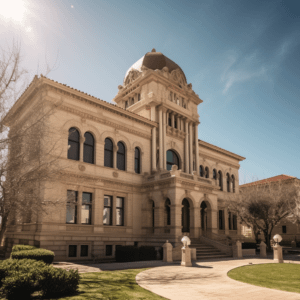Please leave your contact information and we will contact you as soon as possible.
Sexual Abuse Lawyer
We empower victims of crime to come forward, help hold their perpetrators accountable, and ultimately fight to obtain maximum compensation for the life-changing consequences our clients have suffered as a result of the crime.
Key Takeaways
- Sexual abuse is any sexual contact made without mutual consent, and includes rape, sexual assault, indecent exposure, and child pornography. It has immediate and long-term implications on the survivor.
- Sexual abuse can happen to anyone regardless of age, race, gender, or sexual orientation.
- If you decide to fight for justice for sexual abuse committed against you or a loved one, you should consider working with an experienced sex abuse attorney.
Were You or Someone You Love Sexually Abused? Talk with a Compassionate Sexual Abuse Lawyer
Sexual abuse is a horrific crime which can result in overwhelming pain and trauma to survivors. When you are experiencing trauma from sexual abuse, you may not know where or who to turn to for support. For every person who reports being sexually abused, countless more suffer silently. But remember, you are not alone. As a survivor, you have legal rights and may be able to hold your abuser accountable for the crime committed against you. You may be eligible to file a civil sex abuse lawsuit with the help of an experienced sexual abuse lawyer to pursue compensation for the trauma you suffered.
If you or someone you love has been sexually abused, you may want to hire an advocate who will fight for justice on your behalf. Edwards Henderson is dedicated to defending the rights of survivors of sexual assault and helping them hold their abusers responsible for the damage caused. Our initial consultations are free and confidential. If you or a loved one has experienced sexual assault or abuse, contact us at your earliest convenience to schedule a free consultation.
What is Sexual Abuse?
The American Psychology Association defines sexual abuse as any unwanted sexual contact, with perpetrators often using threat, force, manipulation or coercion tactics, or taking advantage of people who cannot consent at the time of the abuse. Sexual abuse can be physical or non-physical. It may include sexual assault, rape, indecent exposure, voyeurism, child sex abuse, child pornography, and generally, any activity involving nonconsensual sexual conduct.
What Are the Different Types of Sexual Abuse?
Unfortunately, anyone can be subjected to sexual assault regardless of age, sex, race, sexual orientation, or gender. There are five broad categories of sexual abuse, each with defining characteristics:
- Verbal: Verbal sex abuse includes spoken or written form of communication, like sexual jokes, sexual teasing, sexual comments, unwanted advances online, sexting, and other sexually explicit content. It is common in many settings, including at work or school. Despite being non-physical, verbal sexual abuse can cause emotional and psychological damage, such as anxiety, low self-worth, and post-traumatic stress disorder (PTSD).
- Physical: Physical sexual abuse is the most commonly understood type of abuse and refers to any nonconsensual sexual contact, including rape, attempted rape, sodomy, sexual assault, fondling, kissing, touching, and other physical invasions of privacy.
- Covert: Covert sexual abuse occurs without the survivor’s knowledge. Ways in which abusers may commit covert sexual abuse include photographing, stalking, and cyber-stalking. Sex abusers who engage in this type of abuse aim to gain some form of sexual gratification without the survivor’s knowledge.
- Visual: Visual sexual abuse is the act of showing someone sexual content against their will. Examples include forcibly showing a person sexually explicit images or videos, inappropriate nudity, engaging in sexual acts in the presence of someone who did not consent to it, exhibitionism, and flashing.
- Ritualistic: Ritualistic sexual abuse refers to sexual abuse with religious or ritualistic connotations. Examples include genital mutilation, child marriage, chants during abuse, and incest rituals. The abusers may attempt to justify the abuse by associating it with an act of worship, cult ritual, or faith.
Signs of Sexual Abuse
The signs of sexual abuse are usually not obvious, but there are some tell-tale signs to watch out for. Some indications that a child or an elder is being sexually abused include the following.
Warning Signs of Child Sex Abuse
Child sex abuse leaves survivors with serious, long-term psychological and emotional damage. Many children who are sexually abused are reluctant to report it or tell an adult, which is why it is important to be aware of the physical, emotional, and behavioral warning signs of child sex abuse:
- Physical signs: Physical warnings that a child may be the subjected to sex abuse include evidence of trauma around the child’s genital area—including swelling, bruising, or blood—and the presence of sexually transmitted infections (STIs).
- Emotional or psychological signs: Emotional signs may include sudden changes in mood or personality, changes in eating habits including formation of eating disorders, anxiety, self-harming tendencies, self-esteem issues, nightmares, fear of being alone, as well as new and unexplained health conditions.
- Behavioral signs: Behavioral warning signs include age-inappropriate sexual behavior, age-inappropriate conversations about or knowledge of sexual topics, regressive behaviors like bed-wetting and thumb-sucking, overly compliant behavior, secretive behavior, fear of being left alone with certain individuals, and spending an excessive amount of time alone.
If your child is exhibiting these signs and you think they may have been sexually abused, it is important to approach the topic carefully with your child. Once you believe sexual misconduct occurred, you should report it to the authorities by calling your local police, Child Protective Services, or by contacting the Childhelp National Child Abuse Hotline. You may jump to our section below on ‘My Child Was Sexually Abused. What Should I Do?’ for more information.
Adult Sex Abuse Symptoms
The psychological and emotional damage caused by child sexual abuse can also manifest in adult survivors of childhood sex abuse. It is common for such survivors to subconsciously repress memories well into adulthood, which may surface in the form of anxiety, depression, trouble with relationships, and other issues. Survivors who were subjected to abuse during their childhood or abuse later in their lives as adults are more likely to have prominent manifestations of repressed trauma in their daily lives, such as:
- PTSD: Some of the symptoms of post-traumatic stress disorder from sex abuse include memory loss, intense feelings of shame or guilt, intrusive thoughts or flashbacks, difficulty regulating emotions, difficulty concentrating, and nightmares.
- Interpersonal relationships: Sex abuse can affect adult interpersonal relationships in many ways, like unhealthy attachment styles such as fear of intimacy, unhealthy coping mechanisms, difficulty setting boundaries with others, social introversion, and propensity to re-victimization.
- Physical: Physical symptoms in adult survivors take the shape of eating disorders like anorexia and bulimia, body image issues, propensity towards living an unhealthy lifestyle, lower pain threshold, and chronic pain.
- Sexual: Common sexual symptoms are avoidance or disinterest in sexual activity, fear of intimacy or sex, difficulty becoming aroused, seeing sex as an obligation, intrusive or disturbing thoughts about sex, and impulsive or unhealthy sexual behaviors, among others.
Signs of Elder Sex Abuse
Elder sex abuse denotes any sexual contact with an elderly individual who cannot consent due to illness or dementia. Signs of elder sex abuse may be:
- Behavioral: Behavioral signs include anxiety, panic attacks, signs of PTSD, withdrawal from others, agitation, changes in behavior around certain individuals, and engagement in abnormal or inappropriate sexual behavior.
- Physical: Physical signs of elder sex abuse include pelvic injuries, STIs, unexplained issues walking or sitting, and unexplained bruising, bleeding, or irritation in the body.
Sexual Abuse: Statistics
Sexual abuse is more common than many think. Here are some telling sexual abuse statistics:
- According to Rape, Abuse, & Incest National Network (RAINN), someone is sexually assaulted in America every 68 seconds, with one in three women and three in 33 men experiencing attempted or completed rape at some point in their life.
- The National Center for Victims of Crime reports that one in five girls and one in 20 boys experience child sex abuse.
- According to the CDC, the lifetime cost of rape has been estimated at $122,461 per survivor, including medical costs, lost productivity, criminal justice activities, and other costs.
- The National Sexual Violence Resource Center states that 81 percent of women and 43 percent of men nationwide report having experienced some form of sexual harassment in their lifetime.
- Darkness to Light, an organization dedicated to ending child sex abuse, reports that only 38 percent of child sexual abuse survivors ever come forward with the abuse.
Where is Sexual Abuse Most Common?
Sexual abuse can take place in any setting. However, here are the most common places where it may happen:
- At home: According to the RAINN, 55 percent of sexual assault occur at or near the survivor’s home. Common perpetrators are family members like parents or siblings or other close relatives, caregivers, babysitters, as well as anyone with a position of trust within the home.
- Summer camps: Sexual abuse has been reported at many types of summer camps including church camps, scout camps, and sports or art camps. Children may be abused by camp counselors or other campers.
- Churches and places of worship: Many religious institutions have come under fire for allegations of sexual abuse and elaborate cover-ups, including the Catholic and Southern Baptist Church. Church leadership is responsible for keeping parishioners safe, but sadly, many have failed to do so by ignoring reports of abuse or even moving offenders to other positions at different churches.
- Foster care: State foster care systems are responsible for keeping children safe in their care. However, the sad reality is that children in foster care are more likely to experience abuse, including sex abuse, than other children.
- Hospitals and long-term care facilities: Hospitals, long-term care facilities, and other medical facilities have a legal duty of care to keep their patients safe during their treatment. When patients are sexually abused within a medical facility’s care, the facility may be held liable as a third party facilitator of the crime.
- Troubled teen programs or camps: Some parents or guardians may send teenagers to behavior-modification programs for mental and/or behavioral issues such as criminal behavior, drug use, eating disorders, and even for their sexual orientation. According to a government report released in 2008, there are numerous instances of physical, sexual, and emotional abuse within these “troubled teen” rehabilitation facilities.
- Daycare centers and preschools: Parents trust daycares and preschools to keep their young and impressionable children safe. It is unfortunate that some daycare centers abuse this trust by failing to take reasonable measures to prevent children from sex abuse.
- Boy Scouts: The Boy Scouts of America has been the center of a sex abuse scandal that dates back decades. Reports state that between 1944 and 2016, there were more than 7,800 suspected abusers and over 12,200 current and former campers who experienced sexual abuse.
- Youth sports leagues: Youth sports organizations that fail to keep children safe can and should be held liable for sex crimes. Typically, such organizations are held accountable for failing to investigate reports of abuse, not thoroughly vetting coaches and assistants, and generally, for negligent supervision.
- Concerts and music festivals: Instances of sex abuse at concerts and music festivals are far more common than one may anticipate. When a person is sexually abused at a festival or concert, the promoter, festival owner, and/or the relevant company may be found liable alongside the perpetrator.
- Hollywood: Sexual harassment and abuse in Hollywood may involve an influential person who takes advantage of new talent such as an actor who is trying to make it in show business.
- Extracurricular activities: Unfortunately, sex abuse can occur in many types of after-school programs or extracurricular activities, including academic enrichment programs, theater or art clubs, music classes, and many others. Groomers may seek to work or volunteer at these programs for their proximity to children so they may become close to them and exploit them for their own sexual gratification.
My Child Was Sexually Abused. What Should I Do?
It can be overwhelming when you first discover that your child was sexually abused. Here are a few tips for what to do in order to get your child the best help possible:
- Respond quickly and with compassion: If your child mentions anything that you think may be related to sexual abuse, it is important to respond quickly and compassionately. Filing a report with the police will provide your family with the resources to help you deal with the sensitive situation. If your child is being abused by someone they regularly interact with, you must distance your child from the alleged abuser as soon as you can.
- Let them know you believe them: You may not want to believe what your child is telling you about sexual abuse, but note that it is highly unlikely that they would lie about it. For a child to come forward about sexual abuse takes immense courage, so make sure to let them know you believe their story.
- Remain calm: If your child opens up to you about sexual abuse, make sure to remain calm. If you get upset or angry, your child might misinterpret your emotions and feel this is because you are angry with them and will punish them—something the abuser had likely warned them of to prevent being caught.
- Seek professional help: After you have alerted the authorities, reach out to professionals for support. Mental health professionals, child welfare professionals, and anti-sex abuse organizations will be able to provide you with the right resources for your child and your family.
- Contact a sexual abuse lawyer: If your child has been sexually abused, a child sex abuse lawyer can help you hold the responsible parties accountable for the damages caused. By filing a civil sex abuse lawsuit, the survivor may pursue compensation for pain and suffering, medical costs, psychiatric treatment bills, as well as other economic and non-economic damages.
My Elderly Relative is Being Sexually Abused. What Should I Do?
In some cases of elder sexual abuse, it is important to keep in mind that the survivor may be unable to report the abuse due to age, disability, or illness. Some survivors, even when physically capable of reporting the abuse, may avoid doing so out of shame, hopelessness, fear of retaliation or other reasons. If you suspect that your elderly relative is being sexually abused, you should consider the following steps:
- Ensure the person’s safety: First, if you are able to have a conversation with your relative you should talk to them in private about your concerns and suspicions. If you believe your relative is in immediate danger, call 911. It is important you do not personally confront the perpetrator as it may put your relative in a difficult or even dangerous situation.
- Report the abuse to the nursing home administrator: If your loved one is a resident of a nursing home or long-term care facility, report elder sexual abuse to management, both verbally and in writing.
- File a police report: File a report with the local authorities. Along with the police, you can also reach out to Adult Protective Services or the National Center on Elder Abuse.
- Ensure your loved one has proper emotional and medical support: It may be best to ask other family members to help support your family member and do as much as possible to alleviate their pain and suffering.
- Contact a sexual abuse lawyer: An elder sex abuse lawyer can help you file a lawsuit on your loved one’s behalf to hold the facility accountable for their role in the abuse. Contact an elder sex abuse law firm to get started on the legal process.
I Am Recalling Memories of Sexual Abuse. What Should I Do?
When we experience a traumatic event, many of the sensations associated with it are stored as memories. So, when we experience similar sensations in the future, they can trigger a memory of the event. Some people may even first remember their past traumatic events during therapy. If you are recalling difficult memories of your sexual abuse, here are some tips for you to consider:
- Confide in a trusted friend or family member: Having a loved one you can turn to for support can help you at a time when your repressed memories are resurfacing. It is beneficial to talk to someone who can listen without judgement and without breaking your confidence.
- Seek professional help: When you are ready to begin processing and healing from repressed memories of childhood or adult sex abuse, you may want to find a licensed therapist and/or psychiatrist who can work with you to help you with your trauma.
- Research the statute of limitations for your state: Each state has different deadlines, or statute of limitations, for filing sex abuse lawsuits. Some states, like New York and California, have passed legislation with temporary “lookback windows” that allow survivors of sex abuse to file civil lawsuits against their abusers and any relevant organizations regardless of when the abuse occurred.
- Contact a sexual abuse lawyer: By working with a qualified sex abuse attorney, you can hold your abuser and any parties that may have enabled the abuse accountable for the harm they have caused you. You may reach out to us to learn more about how we can help you obtain justice.
What Are the Long-Term Effects of Sexual Abuse?
Whether it occurred during childhood or later in life, the long-term effects of sexual assault are profound and may last a long time. They can take many forms and may include anxiety, depression, PTSD, difficulty with relationships, low self-esteem, and more. Sex abuse survivors are also at an increased risk of developing other associated conditions like eating disorders and substance abuse.
Regardless of how burdensome it may feel, know that it is possible to recover from the trauma of sexual assault. However, the journey towards recovery is by no means easy or similar for any two individuals. You may need to work with a mental health professional for months or even years to learn how to manage your trauma and lead a better, healthier life.
Common Hesitations Around Filing a Sexual Abuse Report
Many instances of sexual abuse go unreported. Here are a few common reasons why:
- Threats of retaliation and harm to family members: An individual who has suffered abuse may fear retaliation from their abuser, whether directed at them or at their loved ones. For instance, an employee may worry being fired or demoted for reporting their abuse to management, or they may be undergoing financial difficulties and be hesitant to risk moving jobs.
- Personal relationship with the perpetrator: In some cases, someone may not want their abuser to get arrested or be in trouble with the law. This is especially common in child sex abuse cases where the child has been groomed by the perpetrator. It is important to teach children boundaries while they are young about what is and is not a healthy relationship.
- Contradictory emotions: Some sex abuse survivors have contradictory emotions about what happened to them, including misplaced sense of guilt, shame, fear, or the belief that they are partially at fault. Many also hesitate to report someone who is close to them, like a family member or a friend. Some may fear that revealing sexual abuse may cause grief to their loved ones as well.
- Fear of not being believed: Many abusers manipulate those they abuse into thinking that no one will believe them if they speak out. This is especially common in child sex abuse cases when the abuser is in an authoritative position like a teacher, coach, or family member. It is important for parents or guardians to assure children that they can always come to them and they will be believed.
When Should I Contact a Sexual Abuse Lawyer?
Since there are hard deadlines for filing sex abuse lawsuits, it is important that you seek the help of a sex abuse lawyer as soon as possible. In addition to filing within the statues of limitations, the earlier you contact a lawyer the better chance they have at obtaining and preserving relevant evidence to support your case.
Survivors of sexual abuse often take time to process the trauma and reach a place where they are ready to come forward. Because of this, many states have extended the statute of limitations for bringing criminal or civil charges in such cases. When you feel you are ready to pursue legal action, Edwards Henderson is here to help fight for justice on your behalf.
How to File a Sex Abuse Lawsuit
If you decide to fight for justice, your first step in the legal process would be to find a qualified sex abuse law firm. Remember that you can file a civil lawsuit in addition or in lieu of pressing criminal charges, as they operate independently of each other.
In the case of a civil lawsuit, once you have hired a sex abuse lawyer they will work with you to collect evidence, along with any expert and/or witness testimony to support your case. Your attorney will also assess how the abuse has affected your life to understand an appropriate amount of compensation to fight for. They may negotiate with the defendant and/or their insurance company to obtain a settlement amount, and if a settlement is not possible, represent you in trial.
What Damages Can a Sexual Abuse Lawyer Sue For?
We understand that financial compensation cannot take away your trauma. However, it can give you the resources you may need to access high-quality therapy, rehabilitation, and other forms of support as you heal from the abuse. And most importantly, it can ensure that justice is served. Here are some of the damages you may claim in your lawsuit:
- Trauma or emotional distress
- Medical bills, including emergency hospitalization and prescription drugs
- Therapy, counseling, and psychiatry services
- Anxiety
- Insomnia
- Attorney fees
- Loss of enjoyment of life
- Rehabilitation services
- Funeral expenses (where applicable)
What Institutions or Organizations Can a Sexual Abuse Lawyer Hold Accountable?
Sex abuse can happen anywhere and to anyone. Some examples of institutions or organizations that have been held liable for sex abuse include:
- Religious organizations: The Catholic Church child sex abuse scandal may have gotten the most national attention, but other religious organizations, including the Southern Baptist Church Association and the Church of Jesus Christ of Latter Day Saints have also come under fire for ignoring allegations of sex abuse. It is estimated that the Catholic Church has spent over $4 billion to settle child sex abuse claims.
- Schools and school districts: School systems and academic institutions have a duty to keep their students safe, but sadly, some have been accused of enabling sex abuse. The Education Department’s annual school crime report found that sexual violence at K-12 schools increased by about 50 percent between the 2015-2016 and 2016-2017 school years.
- Athletic teams: The sex abuse allegations against the US Women’s Gymnastics coach Larry Nasser have brought attention to the prevalence of child sex abuse in youth sports leagues. The Safe Sport Act allows such sports league sex abuse survivors to hold athletic organizations accountable, along with the abuser.
- Boy Scouts of America: Thousands of child sex abuse lawsuits caused the Boy Scouts of America to declare bankruptcy, but survivors may still have options to pursue compensation against sponsors and other parties.
- Summer Camps: There have been hundreds of reports of sex abuse at summer camps over the last few decades at several different facilities, including LifeWay Camp in Arizona and Kanakuk Kamps in Missouri. When a summer camp facility fails to take adequate precautions to protect campers from sexual abuse, it can be held liable.
- Juvenile detention centers: A 2012 report by the US Department of Justice detailed findings of juvenile detention center sex abuse in close to 10 percent of facilities across the country, with multiple detention center staff from several facilities, including the Youth Development Center in Concorde, NH, held liable for abuse.
- Troubled teen programs or camps: Multiple troubled teen industry facilities, such as wilderness camps, boarding schools, and boot camps have been held liable in civil lawsuits for child sex abuse.
- Event promotion or security companies: Sex abuse has been reported at many concerts and events like Coachella and Bonnaroo. Individuals who are sexually abused at such events can bring a sex abuse lawsuit against the security company, the event production company, or the promoters.
- Negligent building owners: Property owners have a duty to keep their property free of any present dangers. The owner could be held liable when someone is sexually abused on their property, like if a building owner is repeatedly informed about broken security cameras or poorly secured building entrances, resulting in someone sexually assaulting another person.
Sexual Abuse Lawyer: FAQs
1. Who can pursue a civil lawsuit for sexual abuse?
Survivors of sexual assault or sexual abuse can file a civil lawsuit against the perpetrator and any third party that may have enabled the abuse. A civil sex abuse lawsuit allows the survivor to pursue compensation for the losses they endured due to the abuse.
2. Do you have to file criminal charges to file a civil sex abuse lawsuit?
While filing a police report for sex abuse can help hold your abuser criminally liable, neither a police report nor criminal charges are required to file a civil sex abuse lawsuit. Because the burden of proof is lower in civil court, a defendant acquitted in criminal court may still be required to pay damages under a civil sex abuse lawsuit.
3. What is the difference between a criminal case and a civil case?
A criminal sex abuse lawsuit is a criminal court proceeding in which the state, as the prosecutor, brings a case to criminally punish the defendant for the crime, such as imprisonment. A civil sex abuse case allows the survivor to pursue financial compensation against the abuser and any potentially responsible third parties for the losses suffered due to the abuse.
4. What is the burden of proof in a sexual abuse case?
In a civil lawsuit, the plaintiff has to show that the defendant was responsible by a preponderance of evidence standard. This means that the plaintiff needs to show that the abuse ‘more likely than not’ occurred.
Unlike a civil lawsuit, the prosecutor must prove the defendant’s guilt beyond reasonable doubt in a criminal trial.
5. What is the statute of limitations on sexual abuse?
The statute of limitations for a civil sex abuse lawsuit differs on a state-by-state basis. In New York, for example, individuals have until the age of 55 to file a lawsuit for child sex abuse. For New York adult sex abuse lawsuits, individuals have 10 to 20 years from when the abuse happened, or by November 2023 when the Adult Survivors Act “lookback window” closes.
6. Can I be sued for defamation for accusing someone of a sex crime?
As long as lawsuits are filed in good faith, you should not be worried defamation. Some states have legislation in place that shields survivors from such defamation lawsuits.
7. Am I able to recover punitive damages in a sexual abuse case?
Punitive damages or exemplary damages are additional monetary damages awarded in exceptional circumstances to further punish the defendants for harmful or illegal actions. These are more common in sexual assault cases than most other types of personal injury claims due to the nature of the sex crime.
8. What are some common defenses used in sexual abuse cases?
Common defenses that defendants may try to use in sex abuse lawsuits include: claiming actual innocence (for example, by presenting an alibi for where they were when the abuse occurred), claiming mutual consent, or claiming insanity.
9. How can filing a lawsuit help someone heal from the abuse?
Filing a sex abuse lawsuit can help the survivor heal by allowing them to hold the responsible parties accountable for the trauma they endured and allowing them to tell their story. It may give individuals who were sexually abused the chance to fight for the compensation needed to recover, such as for access to high-quality medical and mental health care. It can also help prevent abuse from happening in the future.
10. What should I do if I believe someone has sexually abused my child?
After speaking to your child, you should consider contacting your local authorities to file a report. It is also advisable to make sure the accused perpetrator no longer has access to or contact with your child. When your family is ready, you may contact a sex abuse attorney who can help you hold the abuser accountable for the crime.
Edwards Henderson: Giving Sexual Abuse Survivors A Voice
Our firm is a major advocate for survivors’ rights. At Edwards Henderson, we specialize in empowering our clients to come forward, holding their perpetrators accountable, and obtaining maximum compensation in court, while also educating the community and inspiring others to do the same.
We Believe You: Speak With an Empathetic Sexual Abuse Lawyer Today
We are a nationally-recognized sex abuse law firm dedicated to providing the highest quality legal services and making substantial, positive changes for the common good. We are skilled litigators and experienced trial attorneys who have effectively pursued civil lawsuits against some of the most powerful individuals, businesses, and organizations on behalf of our clients. We have the resources and expertise needed to help you or your loved one hold sex abusers accountable for their actions in court.
Our sex abuse law firm has a proven record of success fighting for the rights of survivors. We have recovered hundreds of millions of dollars on our clients’ behalf, including a $71 million settlement for a rape survivor. Every day, we aim to make positive changes in the lives of our clients and that of the survivors of sexual abuse. If you or someone you love is a sex abuse survivor, contact Edwards Henderson today to learn more about how filing a sex abuse lawsuit can help you reclaim justice.
No Fees
Unless We Win
Tell us what happened. All consultations are FREE and confidential.
Empowering.
Compassionate.
Trustworthy.
Edwards Henderson is a nationally-recognized powerhouse litigation firm, dedicated to providing its clients with the highest quality legal services and, at the same time, making substantial, positive changes for the common good.
We are skilled litigators and experienced trial attorneys who have effectively pursued civil lawsuits against some of the most powerful individuals, organizations, and big businesses on behalf of people, victims, and small businesses. In fact, we specialize in handling cases where the power differential is greatest and we can use our experience and resources to even the playing field. Whether you were sexually assaulted in a church, foster home, school, spa or massage parlor, summer camp, cruise ship or yacht, or rideshare, we can help. Our recent trial results speak for themselves. Even if the statute of limitations on your right to file a claim has expired, you may still have legal options through a “Lookback window.”
PAGE UPDATES
This page was last updated with new information on June 20, 2023.
May 15, 2023 Update:
The state of Maryland passed the Child Victims Act that eliminated the statute of limitations for suing sexual abusers and enabling third parties for the crime. Prior to the statute, adult survivors of childhood sexual abuse could not sue their abuser after the age of 38, making it difficult for many sexual abuse survivors to initiate proceedings after the date of discovery of the abuse or after they were ready to pursue a sex abuse lawsuit.
June 20, 2023 Update:
The Kansas legislature has passed the Senate Substitute for House Bill 2127 by a 120-0 margin. The bill allows civil sexual abuse lawsuits within 13 years after the survivor turns 18, or three years after the abuser is criminally convicted of child sexual abuse. It also adds childhood sexual abuse to the list of crimes for which a criminal may be prosecuted at any time.









